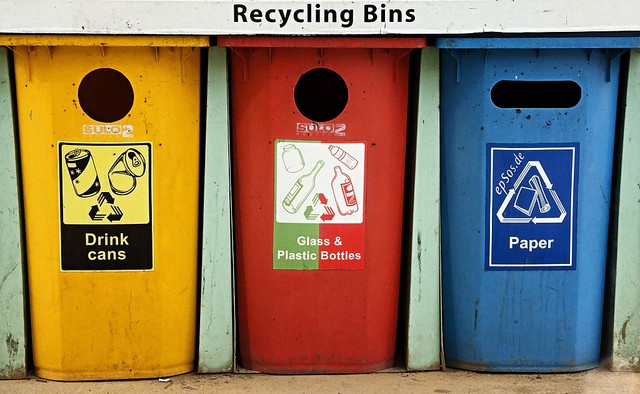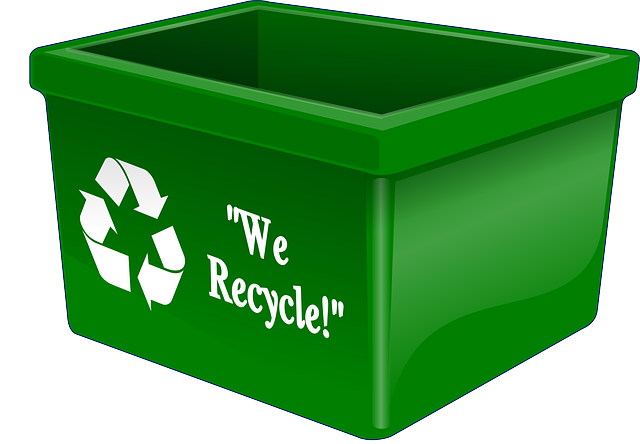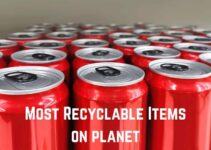Many of us feel overwhelmed by the term ‘recycling.’ Recycling is a form of waste management that involves converting waste and other used materials into reusable products.
The waste management method helps to reduce energy usage, consumption of fresh raw materials, and air and water pollution (from landfilling) by minimizing the need for “conventional” waste disposal.
Of course, that’s not all yet, because recycling also plays a pivotal role in reducing greenhouse gas emissions.
Now, while it’s a process with many advantages, there are several disadvantages associated with it. That’s what we’ll be covering today. But before we examine the two aspects, let’s first get the basics out of the way.
Recycling can be done on a variety of materials. Some of them include:
- Plastic: This category encompasses water bottles, plastic bags, plastic wrappers, and rubber bags.
- Glass: Glass products that can be recycled include wine and beer bottles and broken glasses.
- Paper: This includes magazines, newspapers, books, envelopes, and cardboard boxes.
- Metals: Examples include empty tomato, soda, and fruit cans.
- Other waste products: Think of other recyclable materials like textiles, tires, electronics, and other recyclable products.
The Recycling Process
The recycling procedure can be grouped into three main steps:
Collection of Waste Materials and Processing
Waste materials are collected through drop-off centers, curbside collection, and deposit or refund programs. They are then transported to materials recovery facilities or recycling centers. Here, they are sorted out, cleaned, and processed into ideal materials for manufacturing.
The recycled waste materials can then be bought (by manufacturers or dealers) and sold just like other raw materials. The prices can fluctuate depending on demand and supply throughout the country.
Manufacturing
Manufacturing is where the processed waste materials are converted into useful products. Many products in the modern day are manufactured using recycled waste materials.
Examples include paper towels, newspapers, steel cans, and plastic laundry detergents. Soft drink containers, whether made of glass, plastic, or even aluminum, also fall in this category.
Dissemination of Manufactured Products to The Market
The finished recycled product is then made available for consumers to buy. Usually, manufacturers will include the “made with recycled-content” symbol on the package as a sign to tell you that the product uses recycled materials.
You can be part of waste reduction campaigns by purchasing products made from recycled materials. Check out what the label looks like in the picture below:

With that said, recycling has a plethora of advantages to humans and the environments. Surprisingly, the whole process of recycling comes along with some shocking impacts unknown to a lot of people.
Let’s look at some advantages and disadvantages of recycling.
Advantages of Recycling
There are many benefits that come with recycling. In fact, they’re so many we can’t exhaust them today. However, here are some of the most common advantages of recycling products:
1. Recycling Minimizes Pollution
All forms of pollution in the modern world emanate from industrial waste. Hence, recycling these industrial wastes, for instance, plastics, cans, and chemicals, can go a long way to minimize pollution. That’s because these waste products are reused rather than just being thrown away recklessly.
2. Protects the Environment
The great benefit of recycling waste material is that it plays a big part in protecting Mother Nature in the most balanced way.
For instance, making paper-related products means that many trees must be felled daily to supply the raw materials needed. But by recycling paper waste, manufacturers get access to a new source of raw materials for new products, significantly reducing deforestation.
This classic example demonstrates that other natural resources can be recycled and made useful this way to conserve the environment.
3. Recycling Minimizes Global Warming
Recycling indeed minimizes global warming and its grave impacts. During waste disposal, some wastes can react with heat or other types of waste to emit greenhouse gases such as carbon dioxide, sulfur, and nitrogen, contributing to climate change and global warming.
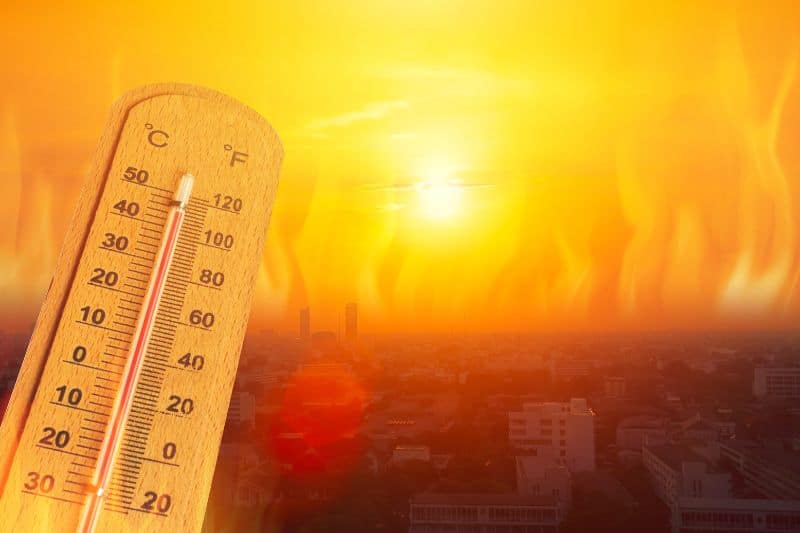
Contrary to traditional waste disposal methods, the recycling process involves minimal combustion. As such, waste is transformed into reusable materials with zero or minimal harmful impact on the environment.
The whole process of processing and manufacturing products from waste materials emits few greenhouse gases because the waste recycling industries burn little fossil fuels.
4. Conserves Natural Resources
If the process of recycling used and old materials never existed, new products could only be manufactured by extracting fresh raw materials underneath the earth through mining and extraction.
Recycling provides a way of conserving and protecting the existing raw materials for future use by maximizing on what’s already extracted or mined. That helps conserve natural resources like minerals, water, and wood to ensure sustainable and optimal use.
5. Recycling Cuts Down the Amount of Waste in Landfill Sites
Recycling old and used materials into reusable products enormously reduces the possibility of choking landfill sites. This is beneficial because it helps minimize land and water pollution.
Since landfills contribute mightily to environmental degradation, less landfill and waste littering ensures less erosion of the topmost fertile soil. And as wastes are saved from being dumped in the ocean, aquatic biodiversity is also maintained.
6. Recycling Ensures Sustainable Use of Resources
Recycling guarantees that existing resources will be used sensibly and sustainably. That’s because the process alleviates the possibility of discriminatory use of raw materials when they are obtainable in huge supply.
Governments these days have stepped in to encourage recycling from lower levels, for instance, schools, small-sized organizations, and global levels.
This means that manufacturing industries can leave existing natural resources for exploitation by our children in the future without affecting current production.
7. Recycling Contributes to The Creation of Jobs
To add to the benefits it brings to the environment, recycling opens up job opportunities. The more we embrace it, the more it necessitates the need to open multiple recycling plants, thus, leading to a long chain of collection and delivery. All these activities require human labor, meaning that recycling generates opportunities.
8. Reduces Energy Consumption
A lot of energy is used to process virgin raw materials during manufacture. Recycling plays a big role in reducing energy consumption as the amount of energy required in recycling is much less than what would otherwise go into working on fresh raw materials.
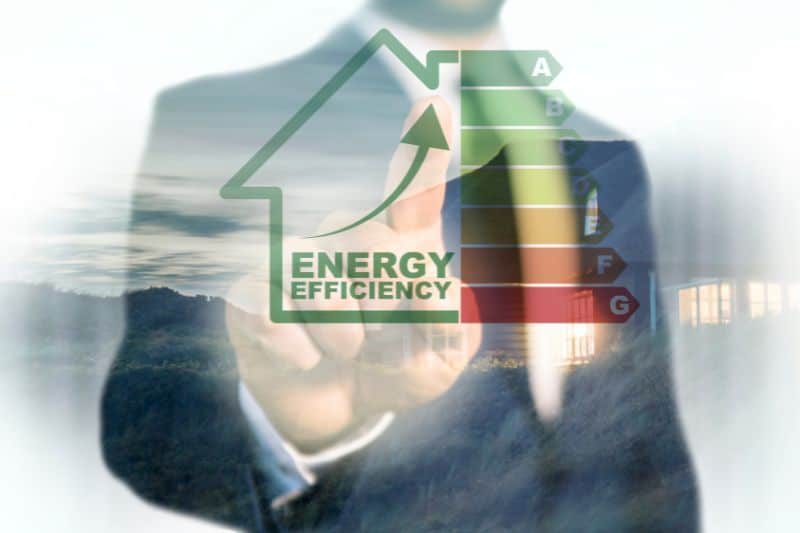
This is vital for large-scale production, for instance, mining and refining. Plus, recycling renders the whole process of production less expensive, which is a great victory for manufacturers.
9. Recycling Helps to Make and To Save Money
Electronics, old water bottles, and other trash can be sold for cash. So if you sell trash, you not only save the environment but make money in exchange.
If you buy recycled materials, they are less expensive, and you will also save money. If you reuse some of the trash that your home produces, you will make and save more money.
10. Recycling Spreads Environmental Awareness
Recycling is just the beginning of a revolution that will help preserve the planet for our future generations. With calls for sorting waste into biodegradable, non-biodegradable, and recyclable, people have become aware of recycling while reducing environmental impact.
When everyone becomes accustomed to recycling, people will be more eco-conscious and participate in eco-friendly activities. This will salvage our planet from all the pollution hazards emanating from waste.
11. Recycling Can Reduce Allied Activities Needed for The Production of Fresh Products
Industries are the biggest producers of greenhouse gases and pollution. If the need for fresh materials is lessened due to recycling, there will be a lesser need for allied activities that usually make huge environmental impacts, like mining and transportation.
12. Recycling of Organic Matter
Recycling of organic matter leads to the generation of valuable compost, which serves as plant fertilizer.
Here’s what EPA says about food waste scraps and yard waste:
“Even when all actions have been taken to use your wasted food, certain inedible parts will still remain and can be turned into compost to feed and nourish the soil,”
“Composting these wastes creates a product that can be used to help improve soils, grow the next generation of crops, and improve water quality.”
13. Innovations Drive Scientific Advancements
Scientific advances are producing less natural resource-intensive products, making recycling numerous products easier. New sorting technologies can identify the grade and type of plastic, automatically speeding up the work process to reduce landfill content.
A new polymer can be added to polyethylene and polypropylene, creating a tough new plastic to recycle the second time easily.
Disadvantages of Recycling
Despite all the positives examined about recycling, the fact remains that this type of waste management method has its own fair share of downsides. Here are some of the cons associated with recycling.
1. High Upfront Capital Costs
Recycling is not always cost-effective. Building up a new waste recycling unit takes up a lot of capital. The accompanying costs include buying different kinds of utility vehicles, upgrading the recycling unit, waste, and chemical disposal, and schooling the locals by initiating useful programs and seminars.
2. Recycling Sites Are Always Unhygienic, Unsafe and Unsightly
Go to any waste recycling site; you will almost always stumble upon unhygienic, unhealthy, and unsightly conditions.
Locations piling every manner of waste provide a nice breeding ground for disease-causing microorganisms and the spread of infectious diseases. The harmful chemicals from these wastes can also be dangerous.
On top of causing massive pollution, the whole recycling process poses health risks for dedicated individuals responsible for recycling these waste products. Also, when these waste products come into contact with water, it forms leachate that pollutes water bodies, not to mention drinking water.
3. Products from Recycled Waste May Not Be Very Durable
The products manufactured from recycled waste may not be at par regarding quality. These products are almost always made of trashed waste material collected from mountains of other waste materials that have been overly utilized and fragile. This makes products of recycled waste less durable and low-priced.
Also, there is no assurance that high-quality products will be obtained from waste recycling if input raw material is of an inferior nature. Some items earmarked for recycling are ultimately subjected to combustion or landfill dumping due to substandard quality.
4. Recycling Is Not Widespread on A Large Scale
Although recycling plays a bigger role in reducing the rate of pollution, the process has not been widely embraced and developed. Unfortunately, recycling still is just a small part of long-term success.
Recycling is common in schools and homes and has not hit a bigger milestone; for example, it has not been wholly used in local industries or holistically on a global stage.
And obviously, the conservation of trees at school is incomparable to the massive destruction of trees and oil spills happening at industrial levels.
5. More Energy Consumption and Pollution
Recycling tons of garbage will require waste to be transported, sorted, cleaned, and processed in separate factories, all of which need energy and may result in by-products that can pollute soil, air, or water.
And we haven’t talked about how the vehicles employed to pick up recyclable products will also increase air pollution by releasing airborne toxins.
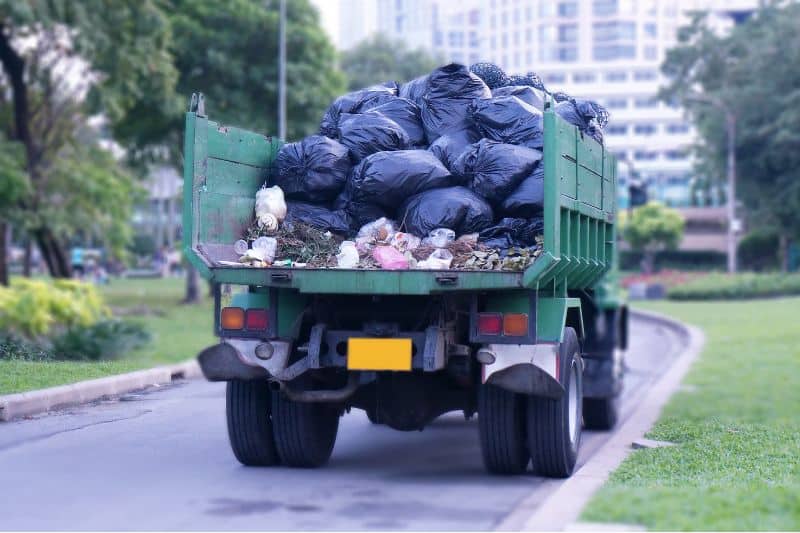
So, as much as it helps minimize pollution and conserve natural resources, it can be a source of pollution and may require a lot of energy to effectively execute.
6. Result in Pollutants
When waste materials break down, pollutants, such as chemical stews, harm the environment. Toxins and impurities from the original material, such as lead paint or spray cans, could pass through the recycling into the recycled product.
Unfortunately, it could take years to realize that the items we have been using are contaminated. For example, recycled steel used in buildings in Taiwan has caused gamma radiation poisoning for the past 12 years.
7. Increased Processing Costs and Low-Quality Jobs
Although recycling is eco-friendly, it is often considered cost-inefficient. Recycling costs can go thrice as much as the cost of dumping garbage in landfills. The process is also labor-intensive.
The manpower requirement is high in recycling jobs, but the kind of work involved can lead to low morale and poor quality of life, and the pay is also low. The bleaching process can expose workers to harsh conditions that can damage their health.
8. Stricter and More Stringent Implementation Required
When the recycling process is not carried on properly, it can harm health and the environment. The debris and toxic waste can contaminate land, air, and the environment at large if improperly handled.
When recycling companies abandon dump sites, waste left lying around can also have an environmental effect. This requires more stringent implementation.
9. Recycling Is Still Ineffective
As discussed above, recycling results in more pollution, higher energy consumption, and cost-inefficiency and thus becomes less effective. Moreover, it still fails to meet its demands.
The demand for aluminum, for example, increased by about 10% in 2021 from what it was in the previous year. That means even with a 100% recycling rate for aluminum products, the products produced would still not meet the current needs, still necessitating the need to work with fresh raw materials.
But sometimes, it’s not about the inadequacy of the waste materials to meet the current market demand, but the lack of enough capacity to handle everything coming from the consumers’ side.
Let’s take soda cans, for instance. The number of these cans that need to be recycled is much more than what facilities can process. In America alone, the average individual drinks 2.5 cans per day, amounting to around 778 million cans that need to be recycled daily.

Of course, no facility can handle all that, forcing most of these cans to wind up in landfills.
10. Methane is a GHG
Methane is one of the ozone-depleting gases. Unfortunately, it is one of the gases released during recycling, depending on the nature of the goods being recycled.
That means if this gas isn’t properly contained to prevent leakage, it can exacerbate global warming, spoiling the whole idea of using recycling to conserve our planet.
11. Revenue loss
Governments providing tax subsidies to recycling plants lose billions of dollars in revenue. This is a significant amount, considering that recycling is only one of the many aspects that need to be considered to maintain a healthy environment.
And that’s it with the pros and cons of recycling!
After juggling the advantages and disadvantages of recycling, an individual can wisely take significant steps involved in the recycling process. Knowing the effects of recycling is vital to a larger degree that, if carried out effectively, can bring immeasurable benefits to the environment and humans.
